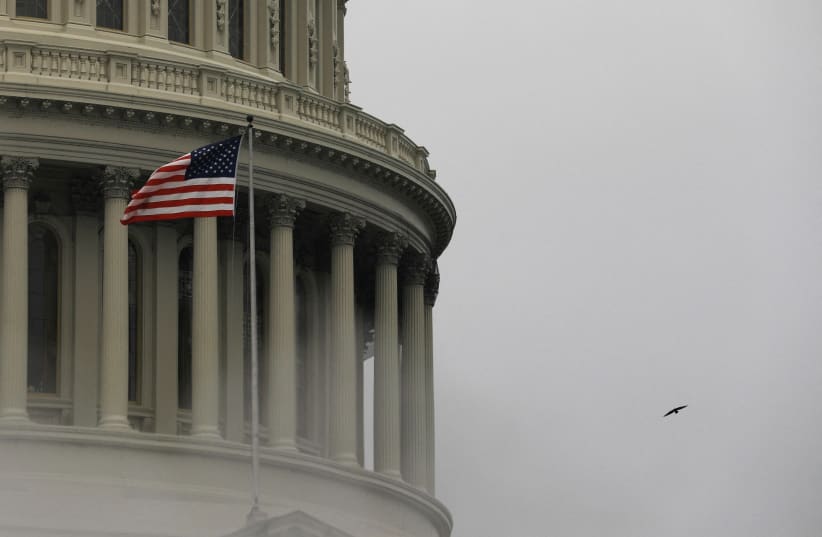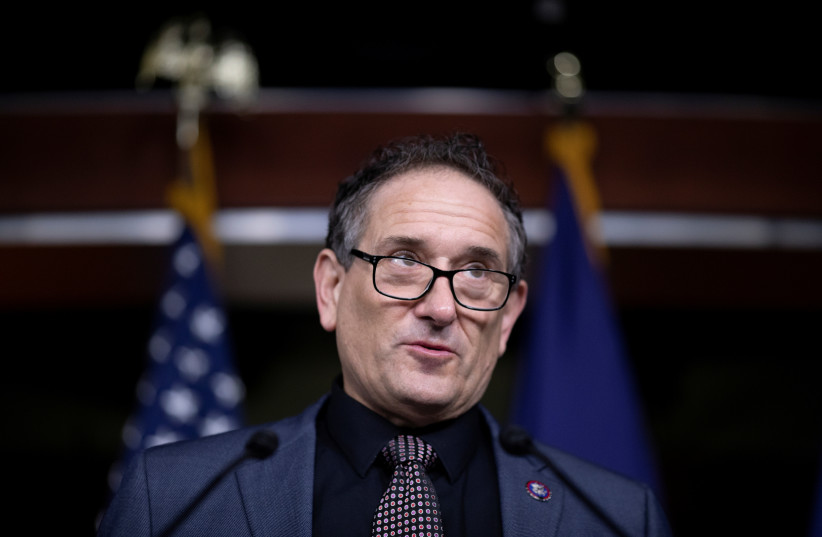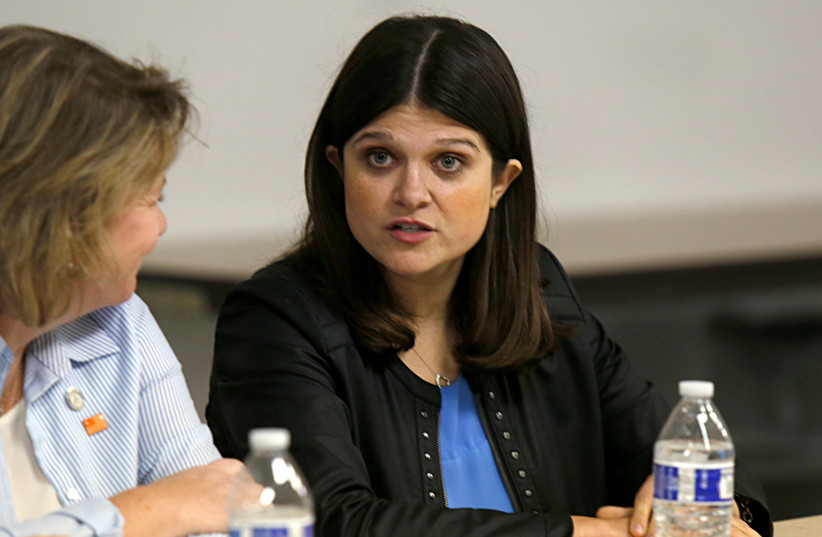WASHINGTON – In 2018, Andy Levin was elected to Michigan’s 9th congressional district and Haley Stevens to the 11th. But since the state lost a House seat at the last census, the map had to be redrawn. As a result, Tuesday’s primary is going to be unusual, with two incumbents fighting for the same seat in the newly drawn 11th district.
“I am much more progressive than Rep. Stevens,” Levin told the local ABC7 station last week. “Are you satisfied with the gridlock about climate change? Because I am the person who has written legislation not only with Senator [Elizabeth] Warren, but also with Sherrod Brown and AOC,” he added, referring to Rep. Alexandria Ocasio-Cortez by her initials.
Levin also introduced the Two-State Solution Act.
“A two-state solution is the only way to ensure Israel’s survival as a democratic state and a national home for the Jewish people while fulfilling the Palestinian people’s legitimate aspirations for a state of their own with full respect for their political and human rights,” his website states.
The race between progressive Levin and moderate Stevens has got the attention of both AIPAC and J Street PACs. Last December, AIPAC announced that it would move to establish a PAC and contribute to campaigns directly for the first time. Thus, the two organizations’ PACs are now supporting candidates running against each other. In Tuesday’s primary, AIPAC-PAC is backing Stevens while J Street PAC is backing Levin.
Levin criticized AIPAC-PAC’s support for Stevens. He said in an event in June, “It’s not acceptable as a moral Jewish person to support people who are undermining our democracy. It’s not about getting endorsed by AIPAC. It’s about taking hundreds of thousands of dollars from them.”
AIPAC-PAC contributed $5,000 and $676,924 in direct contributions through the AIPAC-PAC portal, and an additional $4.2 million through United Democracy Project, an AIPAC-linked super-PAC.
A poll conducted by Target Insyght, a Michigan-based firm, and published last week by Jewish Insider, found that Stevens had a 27-point lead over Rep. Levin.
AIPAC spokesman Marshall Wittmann said the contrast in this race could not be clearer, “between Congresswoman Stevens, who has a strong and reliable record of standing with Israel, while her opponent does not.”
“For instance, her opponent has introduced unfair and unbalanced legislation that puts the primary blame for the Israel-Palestinian conflict on Israel and will make it even more difficult to bring peace.,” he said. “This legislation also opens the door to conditioning security assistance to Israel at a time when it faces dangerous threats.
“IT IS VERY revealing that while the pro-Israel community solidly stands with Congresswoman Stevens, her opponent embraces support from some of the most hostile and persistent critics of the Jewish state”
Marshall Wittmann, AIPAC spokesman
“IT IS VERY revealing that while the pro-Israel community solidly stands with Congresswoman Stevens, her opponent embraces support from some of the most hostile and persistent critics of the Jewish state,” Wittmann said. “We are proud of our participation in the democratic process but a hypocritical double standard is often applied to our political involvement.
"Those who criticize our participation hypocritically support the use of the same tools against pro-Israel candidates. And some groups which claim to be ‘progressive’ are running ads against a Democratic congresswoman who has a perfect voting record on many issues that are important to the progressive community.”
J Street vice president of communications Logan Bayroff said the organization is “proud to have done all we can in this race to support our friend and ally Rep. Andy Levin, who champions the pro-Israel, pro-peace views and Jewish, democratic values that are shared by the majority of our community. Via the J Street Action Fund, we have spent over $700,000 to help re-elect Rep. Levin. Via JStreet PAC, we contributed over $300,000 directly to Rep. Levin’s campaign.
“Unfortunately, Rep. Levin has been aggressively and unfairly targeted by AIPAC and their GOP megadonor-funded Super PAC, who have spent nearly $5 million to defeat him and who have baselessly smeared him as “anti-Israel,” “fringe” and “hostile,” while simultaneously supporting 109 extreme Republican members of Congress who voted to overturn the US election on January 6th,” Bayroff said.
“The truth is that what AIPAC really finds threatening is Rep. Levin’s willingness, as a Jewish-American who cares deeply about Israel, to oppose the occupation and right-wing Israeli government policies, while he champions meaningful American leadership to help achieve a two-state solution,” Bayroff continued.
“By spending millions against Rep. Levin for holding mainstream pro-Israel, pro-peace views, AIPAC hopes to send an intimidating message to others and close down political space in Congress and in our community.”
Scott Lasensky, lecturer at the University of Maryland Program and Center for Jewish Studies, said the Michigan House race “is just the latest sign that long-standing, bedrock norms of Jewish American politics are breaking down.”
“American Jewry’s belief in bipartisanship and the importance of steering clear of public endorsements and campaign finance; these rules are crumbling in the face of the intrusion of partisan and overt political activity,” he said. “Communal spaces and frameworks will find it harder to maintain traditional red lines when other players are rewriting the rulebook.”
Lasensky went on to say, “On its own, whether in terms of control of the House or the broader arc of the US-Israel alliance, this race in Michigan is unlikely to be decisive. Where it matters most is for the reputations of Jewish community organizations and the Jewish figures who have put their names and reputations on the line. Some will claim victory regardless of the outcome, because the race is being used to galvanize networks of support. That said, winning the race is key and the groups who have invested the most have the most at stake.”


